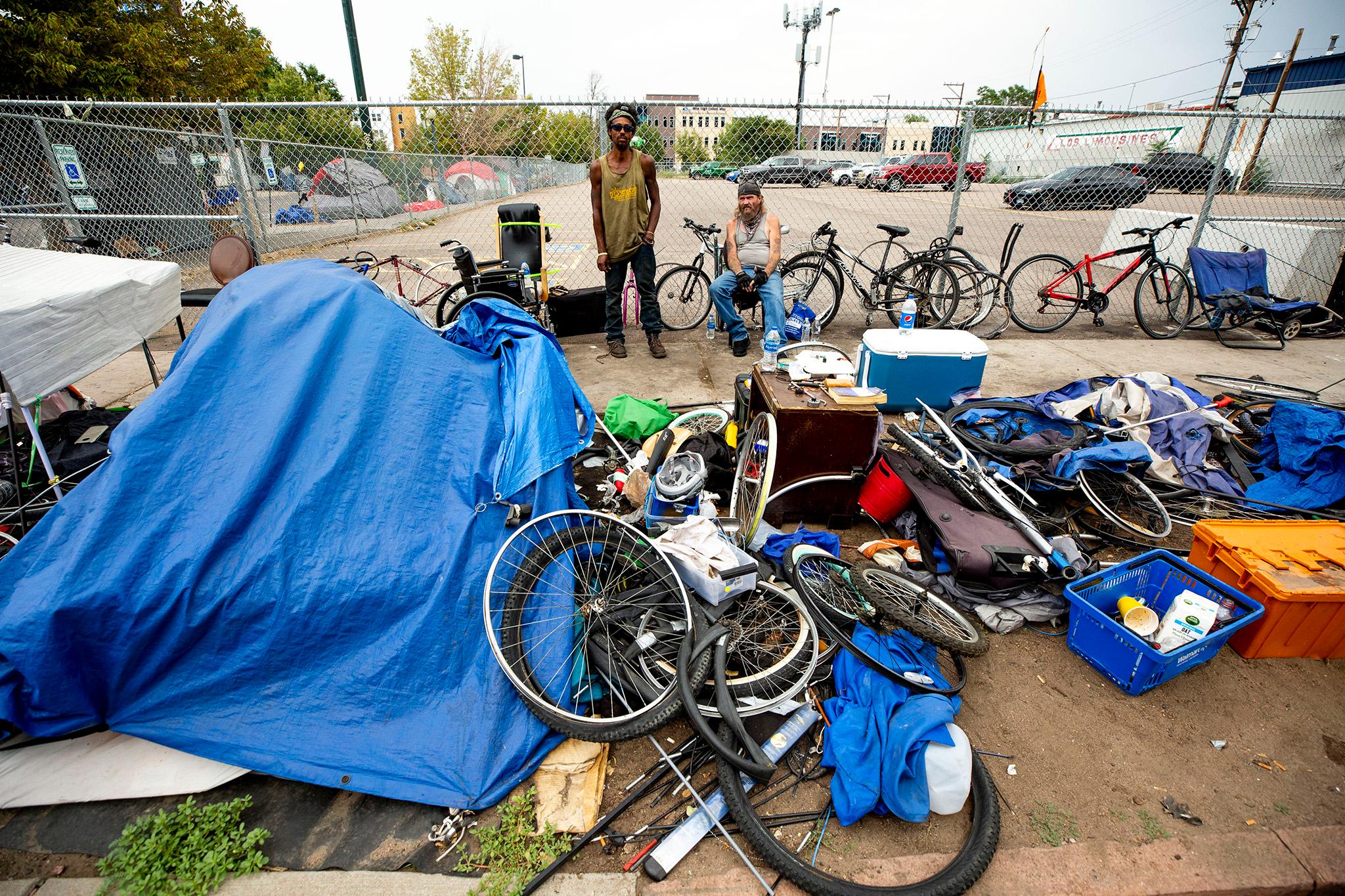One lives in a house. One lives in a tent. During a neighborhood meeting Wednesday, two Curtis Park residents had similar reactions to plans the city has to conduct cleanups along Park Avenue next week.
Khaled Yohannes said such cleanups lead to the displacement of people experiencing homelessness, making it hard for them to maintain connections with services that might lead to housing and support to stay housed.
"People are so scattered," said Yohannes, who has been living on Denver's streets since last summer. "And the neighbors are getting pissed off."
His housed counterpart was Jeff Baker, president of the Curtis Park Neighbors group. Baker said the cleanup would likely move people experiencing homelessness "to another corner of the neighborhood" without addressing underlying problems.
Baker and Yohannes were among a dozen people gathered in a circle on the plaza between Sonny Lawson Park and the Blair-Caldwell African American Research Library for a weekly meeting about housing and homelessness Wednesday. Across from the park, signs posted by the Department of Transportation and Infrastructure notified passersby and tent dwellers of cleanups scheduled for Aug. 25 and 26.
The housed and the unhoused at the meeting, organized by the Curtis Park Neighbors group's Homelessness Solutions Committee, had shared concerns about crime, trash, substance abuse, mental health and lack of sanitation. The committee had invited Gary Sanford, director of community engagement for the new Caring for Denver Foundation to speak about his foundation's financial backing for Support Team Assisted Response, or STAR. The project diverts some 911 calls away from police officers and to professionals that can handle substance abuse and mental health crises.
"Housing, really ... boils down to being the issue," Sanford said, getting no dissent from the group. "Our dollars can really help keep people housed once they get housed," a reference to the Caring for Denver Foundation, founded and funded after Denver voters in 2018 agreed to increase the sales tax by .25 percent to support programs to improve mental and behavioral health care services.
Sanford offered to connect Curtis Park Neighbors to the organizers of STAR.
Baker, of the Curtis Park Neighbors group, wore a yellow vest emblazoned with the words "Five Points Housing Options Team." He acknowledged that increasing housing was an ambitious goal for a group that started out picking up trash in the neighborhood 14 months ago.
Members still meet at least weekly to collect trash and engage in guerrilla gardening. They also have lobbied for what they see as long-term solutions to unsanctioned encampments, including sanctioned camping, and have reached out to other groups fighting homelessness as a way to have more impact.
"We're trying to become outreach workers," Baker had said at the start of Wednesday's meeting, adding that that would require learning more about the support services to which people experiencing homelessness can be referred.
Yohannes mostly listened during Wednesday's meeting.
"Housing is what we need," she said afterward. "Let's change the world. Let's put people in housing."












